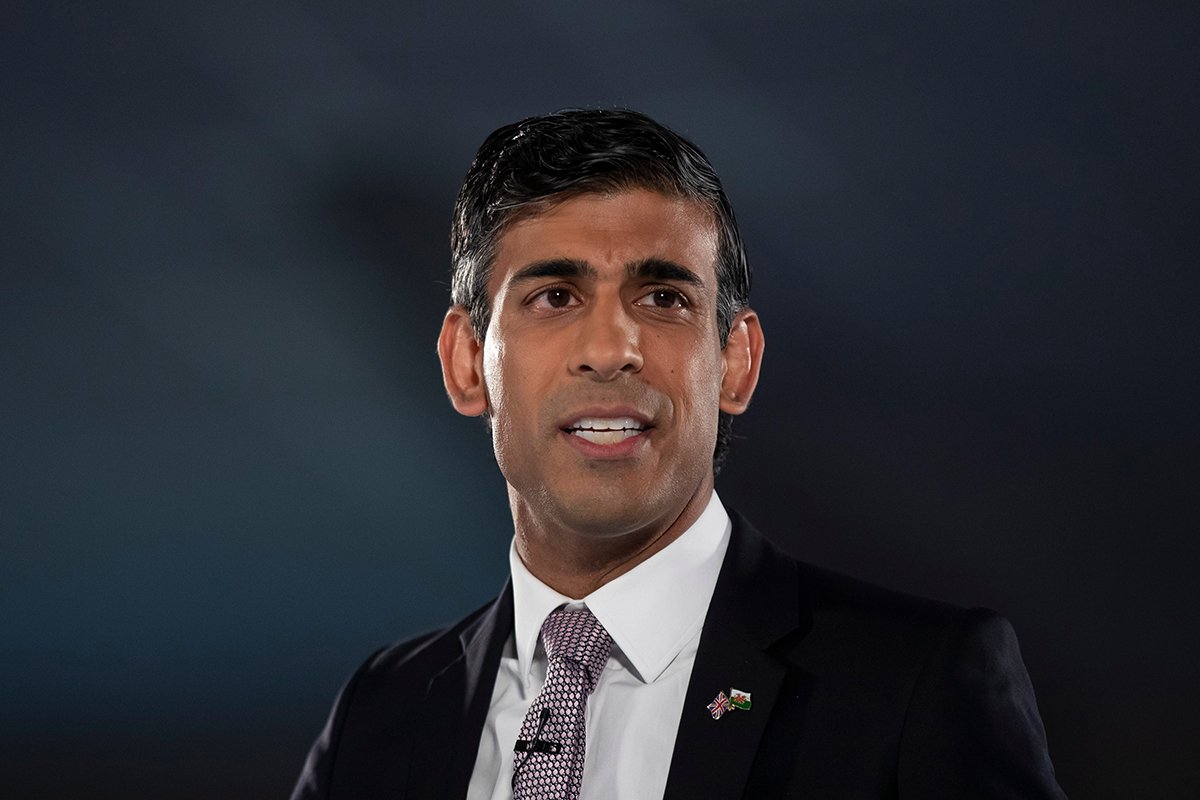Less than two years back, the United Kingdom touted itself as a key player in combating climate change globally.
During the crucial COP26 climate summit in Glasgow, former Prime Minister Boris Johnson urged global leaders to consent to a meaningful resolution recognizing the contribution of fossil fuels to climate change. In a groundbreaking speech, Queen Elizabeth II stressed that action should now replace mere discourse.
However, the situation appears drastically different today. With an election looming, Rishi Sunak’s struggling government seems to have exchanged resolve for discord.
Sunak is accused of exploiting green policies as a controversial topic that could reverse his party’s dwindling popularity, ending a decade-long, party-transcending consensus on confronting the climate crisis.
Sunak expressed his intent to fully leverage oil and gas resources in the North Sea, revealing plans for increased fossil fuel drilling. This announcement has drawn condemnation from environmental advocacy groups.
Sunak also reassured Britain’s drivers through the Telegraph newspaper, stating that he stands by them. He initiated a review of low-traffic neighbourhoods, often termed “anti-motorist,” established to enhance urban air quality.
Frequent taunts aimed at climate activists have now become regular in parliamentary discussions. In heated interviews on Monday, Sunak justified his everyday use of aircraft for domestic travel – a practice that opposition politicians have often called out.
Luke Murphy from the progressive IPPR think tank said that the government appears to be exploiting climate issues to polarize the public, seeing it as a political opportunity.
Most do not anticipate this new push to secure victory in the upcoming elections. However, like many climate experts, Murphy is concerned about the potential impact on Britain’s global reputation.
He stated that although the Boris Johnson administration had shortcomings, they demonstrated a sincere commitment to achieving net-zero emissions and addressing climate issues.
But, Murphy added, “Since then, we’ve regressed. We’ve hit a standstill in many policy areas. Many now don’t see The UK as a global leader in climate issues.”
A Populist Tilt in Climate Politics
Since assuming power, Sunak has been hunting for controversial issues that might resonate with the British public and help improve his party’s dismal standing. The matters of asylum-seeker crossings, transgender rights, and other so-called “culture war” conflicts have been aggressively pursued by a Prime Minister who, in his first leadership campaign last year, pledged to end “woke nonsense.”
However, Sunak hasn’t been successful in shaking off the label of being a caretaker of the Conservative Party’s managed decline amidst rising living costs and a reduction in public services. Having been in power for 13 years, the party seems to be running out of innovative ideas.
A beacon of hope appeared for Sunak when he managed to secure a close victory in the by-election for the replacement of Boris Johnson as an MP for Uxbridge. This western London region’s vote was heavily influenced by local resistance to expanding London’s pioneering low-emissions zone, providing the local Conservatives with a rare issue to assertively campaign on.
Despite losing a considerable proportion of votes in the region, top-ranking Conservatives have enthusiastically embraced an anti-green stance since the vote. They are increasingly drawing parallels between emissions-reducing agendas and the extremist fringes of the climate movement, associating the opposition Labour Party with the controversial group Just Stop Oil, known for disruptive guerilla protests.
Tim Bale, a politics professor at Queen Mary University in London, told CNN, “What you are seeing is a much more populist way of handling the climate.” He added that the Uxbridge victory had encouraged the party to adopt a more hardline stance towards climate policy, seeing it as a potential rallying point for a section of voters.
The Challenging Path Ahead
However, Sunak’s path is fraught with challenges. Even voters against schemes like ULEZ do not necessarily lack concern about the climate; the issue has become increasingly prevalent in recent years. According to data from the Office for National Statistics, nearly two-thirds of Britons consistently consider it one of the country’s most crucial issues.
London’s Mayor Sadiq Khan has staunchly defended his city’s programs, such as ULEZ, which survived a legal challenge brought by five Conservative councils last week. Moreover, Sunak’s stance on climate change has drawn criticism from his party members.
Zac Goldsmith, Foreign Office Minister, resigned in June, criticizing Sunak’s climate policies. A former energy minister, Chris Skidmore, criticized Sunak’s expansion of North Sea drilling, stating it puts him on “the wrong side of history.”
But with Britain longing for a change in leadership, the Uxbridge victory might have provided Sunak with a blueprint for next year’s election – and picking fights with critics might help him promote his agenda.
Bale, the politics professor, said, “There aren’t many obvious other avenues for this government to go down. This, like the small boats issue, perhaps provides a bit of a distraction for people.” He drew parallels with the ongoing situation with migration, calling it a typical populist tactic – drawing a line between people and the elites.
The stance Rishi Sunak’s government is taking on climate change, despite public opinion and the pressing global imperative to act, illustrates their predicament. In choosing to capitalize on divisive topics to distract from their lacklustre performance and potential election losses, they may compromise the United Kingdom’s long-term interests and global standing in climate leadership. This move could define the political landscape in the upcoming elections and might have repercussions far beyond the shores of the British Isles.







